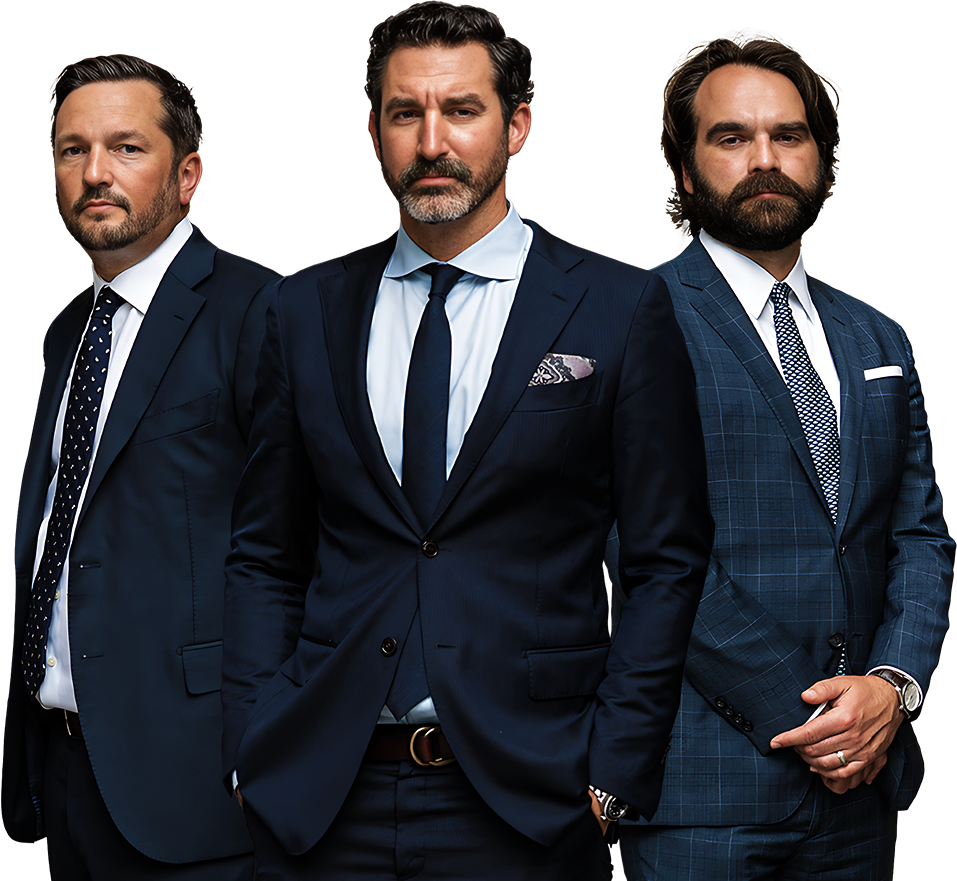Introduction
After a car accident, seeking medical attention promptly is crucial. A comprehensive medical evaluation can help assess and treat any injuries sustained during the collision. Depending on the nature and severity of your injuries, different medical professionals may be involved in your care. In this article, we will explore the various doctors you may need to see after a car accident and the specific conditions they specialize in treating.
The aftermath of a car accident can be overwhelming, both physically and emotionally. Prompt medical attention can help ensure your well-being and guide you on the path to recovery. Let’s delve into the types of doctors you may encounter after a car accident and understand their roles in your care.
Emergency Room Physicians
In the immediate aftermath of a car accident, emergency room physicians are often the first medical professionals you will see. They are trained to stabilize and treat life-threatening injuries and provide immediate medical care. Emergency room physicians may perform initial assessments, administer pain medication, and order imaging tests to diagnose your injuries. They will also make decisions regarding whether you need to be admitted to the hospital for further treatment or released with instructions for follow-up care.
Emergency room physicians play a crucial role in managing severe injuries, such as head trauma, spinal cord injuries, and internal bleeding. They work quickly to assess your condition and take appropriate measures to prevent further complications. Their expertise in handling acute trauma can make a significant difference in the outcome of your recovery.
Orthopedic Surgeons
Orthopedic surgeons specialize in the diagnosis and treatment of injuries to the musculoskeletal system, including bones, joints, muscles, and ligaments. They are often involved in the care of car accident victims who have sustained fractures, dislocations, or other orthopedic injuries. Orthopedic surgeons may perform surgeries to repair damaged bones or joints, as well as provide rehabilitation and pain management strategies.
If you have experienced any bone or joint pain, swelling, or difficulty moving after a car accident, it is essential to see an orthopedic surgeon. They will assess your injuries, determine the extent of the damage, and recommend the most appropriate course of treatment. Orthopedic surgeons can help restore your mobility, reduce pain, and improve your overall function.
Neurologists
Neurologists specialize in the diagnosis and treatment of disorders of the nervous system, including the brain, spinal cord, and nerves. They are often involved in the care of car accident victims who have sustained head injuries, such as concussions or traumatic brain injuries. Neurologists may perform neurological examinations, order imaging tests, and prescribe medications to manage symptoms. They can also provide guidance on rehabilitation and recovery strategies.
If you have experienced any headaches, dizziness, memory problems, or other neurological symptoms after a car accident, it is important to see a neurologist. They will assess your condition, determine the extent of the damage, and recommend the most appropriate course of treatment. Neurologists can help improve your neurological function, manage symptoms, and reduce the risk of long-term complications.
Chiropractors
Chiropractors specialize in the diagnosis and treatment of neuromusculoskeletal disorders, with a focus on spinal alignment and manipulation. They are often involved in the care of car accident victims who have sustained whiplash or other soft tissue injuries. Chiropractors may perform spinal adjustments, provide massage therapy, and recommend exercises to improve mobility and reduce pain.
If you have experienced any pain, stiffness, or restricted movement in your neck, back, or other areas of your body after a car accident, it is important to see a chiropractor. They will assess your condition, determine the underlying cause of your symptoms, and recommend the most appropriate course of treatment. Chiropractors can help improve your mobility, reduce pain, and restore your overall function.
What Doctor to See After a Car Accident?
In the aftermath of a car accident, it’s crucial to seek medical attention promptly. However, determining the right doctor can be a daunting task. The type of injuries sustained will guide you towards the most suitable healthcare provider.
Determining the Right Doctor
The extent and nature of your injuries will dictate the type of doctor you need to see. If you’ve sustained minor injuries, such as cuts, bruises, or sprains, an urgent care clinic or family medicine doctor may suffice. These providers can assess the injuries, provide treatment, and offer recommendations for follow-up care.
However, if you’ve suffered more serious injuries, such as broken bones, head trauma, or internal bleeding, you’ll likely require specialized care. In these instances, you should seek treatment from an emergency room or trauma center. These facilities are equipped with advanced technology and highly trained staff to handle life-threatening emergencies.
Specific Injuries and Doctor Recommendations
For certain types of injuries, specific doctors may be best suited to provide care:
- Head injuries: Neurologist or neurosurgeon
- Neck injuries: Orthopedic surgeon or chiropractor
- Back injuries: Orthopedic surgeon or physiatrist
- Broken bones: Orthopedic surgeon
- Cuts and wounds: Emergency room doctor or plastic surgeon
- Internal bleeding: Emergency room doctor or general surgeon
It’s important to seek medical attention as soon as possible after a car accident, regardless of the severity of your injuries. Early diagnosis and treatment can significantly improve your chances of a full recovery.
After a car accident, the adrenaline running through your veins can mask the severity of your injuries, making it crucial to seek medical attention promptly. Determining which doctor to consult can be overwhelming, especially amid the chaos and confusion. This article will guide you through the process of identifying the right healthcare professional for your specific needs.
Primary Care Physician (PCP)
For minor injuries, such as sprains, bruises, or superficial cuts, a Primary Care Physician (PCP) can provide initial assessment and care. They will examine you, take your medical history, and recommend appropriate treatment. However, if your injuries are more severe or require specialized attention, your PCP may refer you to a specialist.
Emergency Room (ER)
In case of life-threatening injuries or severe trauma, such as broken bones, head injuries, or internal bleeding, you should seek immediate medical attention at the nearest emergency room (ER). ER doctors are trained to handle critical situations and stabilize patients before further treatment. They have access to advanced medical equipment and can perform emergency procedures if necessary.
Orthopedic Surgeon
If your injuries involve bones, muscles, tendons, or ligaments, an Orthopedic Surgeon is the specialist you need. They diagnose and treat musculoskeletal injuries, including fractures, sprains, strains, and dislocations. They perform surgeries to repair damaged tissues and restore mobility. Orthopedic Surgeons also provide rehabilitation plans to help you regain your full range of motion and function.
Neurologist
Neurologists specialize in diagnosing and treating conditions related to the nervous system, including the brain, spinal cord, and nerves. If you have experienced head trauma, dizziness, numbness, or weakness after a car accident, you may need to consult a Neurologist. They can order tests, such as MRIs or CT scans, to evaluate the extent of your injuries and recommend appropriate treatment.
Physical Therapist
Physical Therapists play a crucial role in rehabilitating patients after car accidents. They develop personalized treatment plans to improve range of motion, strength, and balance. They use various techniques, including exercises, manual therapy, and modalities, to help you regain your physical abilities and return to your daily activities.
What Doctor to See After a Car Accident
When you’ve been in a car accident, it’s crucial to seek medical attention promptly, even if you don’t feel injured. Some injuries can take days or even weeks to manifest, so it’s always better to err on the side of caution. But with so many different types of doctors out there, who should you see after a car accident? The answer depends on the severity of your injuries.
Emergency Department (ED)
For severe injuries, such as fractures or head trauma, the ED is equipped to provide immediate and comprehensive care. The ED is staffed with a team of doctors, nurses, and other medical professionals who are trained to handle all types of emergencies. If you’re experiencing any of the following symptoms, you should go to the ED immediately:
– Severe pain
– Difficulty breathing
– Numbness or tingling
– Headache
– Dizziness
– Nausea or vomiting
– Confusion
– Loss of consciousness
Urgent Care Center
If your injuries are not as severe, you may be able to go to an urgent care center. Urgent care centers are typically open longer hours than the ED, and they can provide treatment for a wide range of injuries and illnesses. However, urgent care centers are not equipped to handle severe injuries, so if you’re in doubt, it’s always better to go to the ED.
Primary Care Physician
If your injuries are minor, you may be able to see your primary care physician (PCP). Your PCP can provide treatment for a variety of injuries and illnesses, including sprains, strains, cuts, and bruises. Your PCP can also refer you to a specialist if necessary.
Specialist
If you have a serious injury that requires specialized care, you may need to see a specialist. There are many different types of specialists, including orthopedists, neurologists, and plastic surgeons. Your PCP can refer you to the appropriate specialist.
What Doctor to See After a Car Accident?
The aftermath of a car accident can be overwhelming, leaving you with a slew of physical and emotional concerns. One of the most pressing questions you’ll face is who to turn to for medical care. Here’s a comprehensive guide to help you navigate the healthcare system and find the right doctor for your specific needs.
Orthopedic Surgeon
If you’ve sustained musculoskeletal injuries, such as broken bones or joint dislocations, an orthopedic surgeon is the medical professional you need. They are experts in treating these types of injuries, using a combination of surgery and non-surgical methods like casts, braces, and physical therapy.
Neurologist
If you’re experiencing symptoms such as headaches, dizziness, or memory problems following an accident, a neurologist should be your first port of call. They specialize in diagnosing and treating injuries to the brain and nervous system, ensuring your long-term neurological health.
Chiropractor
Chiropractors focus on diagnosing and treating injuries to the musculoskeletal system, particularly the spine. If you’re experiencing pain or discomfort in your neck, back, or shoulders, a chiropractor can adjust your spine and provide pain relief. They may also recommend exercises and lifestyle changes to prevent future issues.
Physical Therapist
Physical therapists help restore movement and function after an injury. They develop personalized exercise programs to improve your range of motion, strength, and balance. Your doctor may recommend physical therapy to help you regain movement and reduce pain.
Emergency Room Doctor
In cases of severe or life-threatening injuries, such as head trauma or internal bleeding, it’s crucial to seek immediate medical attention at an emergency room. ER doctors are trained to stabilize and treat these types of injuries, providing the necessary life-saving care.
Conclusion
After a car accident, choosing the right doctor is essential for ensuring your physical recovery and well-being. By understanding the expertise of different medical professionals, you can make an informed decision about who to see based on your specific needs. Remember to consult with your primary care physician for referrals and guidance to ensure you receive the best possible care.
What Doctor to See After a Car Accident
A car accident can be a harrowing, life-altering experience. Not only do you have to deal with the immediate aftermath of the crash, but you may also be left with various injuries that require medical attention. Determining the best doctor to consult after a car crash can be overwhelming. To help you navigate this process, here’s a comprehensive guide to the different medical professionals you may need to see.
Chiropractor
Chiropractors specialize in diagnosing and treating neuromusculoskeletal conditions. If you’re experiencing back pain, neck pain, or headaches following a car accident, a chiropractor can provide spinal adjustments and other therapies to relieve your pain and restore mobility.
Emergency Room Physician
If you’ve suffered severe injuries, such as broken bones, lacerations, or head trauma, it’s essential to seek immediate medical attention at an emergency room. Emergency room physicians are trained to stabilize your condition and provide prompt treatment.
Family Physician
Your family physician is your primary care provider and can provide comprehensive medical care. They can assess your overall health, diagnose injuries, prescribe medications, and refer you to specialists if necessary. Many family physicians also have experience treating whiplash, sprains, and other common car accident injuries.
Neurologist
If the accident resulted in head or spinal cord injuries, a neurologist can diagnose and manage the neurological consequences. Neurologists are specialists in the nervous system and can evaluate your cognitive function, motor skills, and sensory perception. They can also order imaging tests, such as MRIs or CT scans, to assess the extent of your injuries.
Orthopedic Surgeon
Orthopedic surgeons specialize in treating injuries and disorders of the musculoskeletal system, including bones, joints, muscles, and ligaments. If you’re experiencing pain or limited mobility in your extremities, wrists, or ankles, an orthopedic surgeon can diagnose and treat your condition. This may involve casting, splinting, injections, or surgery.
Psychiatrist
Car accidents can have a significant emotional impact, leading to anxiety, depression, or post-traumatic stress disorder (PTSD). A psychiatrist can provide counseling and prescribe medications to help you cope with the emotional challenges of a car crash. They can also offer support and guidance as you process the trauma.
What Doctor to See After a Car Accident
After the shock and chaos of a car accident, it’s crucial to seek immediate medical attention. But who should you see? With numerous medical professionals available, it can be daunting to know where to turn. This comprehensive guide will help you determine the right doctor to meet your specific needs and ensure proper treatment for your injuries.
Primary Care Physician
Your primary care physician (PCP) is often the first point of contact after an accident. They can assess your overall health, address any immediate concerns, and refer you to specialists if necessary. PCPs are familiar with your medical history, which can be invaluable in evaluating potential injuries.
Emergency Room Physician
If your injuries are severe or life-threatening, you should go straight to the emergency room (ER). ER physicians are trained to handle urgent medical situations and can provide immediate treatment for broken bones, lacerations, head injuries, and other serious conditions.
Orthopedic Surgeon
Orthopedic surgeons specialize in diagnosing and treating musculoskeletal injuries, including broken bones, sprains, strains, and dislocations. They can perform surgeries, prescribe pain medication, and develop rehabilitation plans to help you regain mobility and function.
Neurologist
Neurologists specialize in the nervous system. They can diagnose and treat head injuries, concussions, spinal cord injuries, and other conditions that affect the brain and nerves. Neurological exams and imaging tests can help determine the extent of your injuries and guide appropriate treatment.
Chiropractor
Chiropractors focus on diagnosing and treating musculoskeletal conditions, particularly those related to the spine. They use spinal adjustments, manual therapies, and exercises to alleviate pain, improve mobility, and prevent future injuries. Chiropractors can be particularly helpful for whiplash and other soft tissue injuries common in car accidents.
Physical Therapist
Physical therapists work with patients to improve mobility, function, and overall well-being. After a car accident, they can develop individualized rehabilitation plans that include exercises, stretches, and other therapies to help you regain strength, range of motion, and flexibility. Physical therapy can be an effective way to manage pain and prevent long-term complications.
Conclusion
Choosing the right doctor after a car accident is essential for proper diagnosis, treatment, and recovery. By understanding the different specialties and their roles, you can make informed decisions about your healthcare and ensure the best possible outcome for your injuries.




Leave a Reply